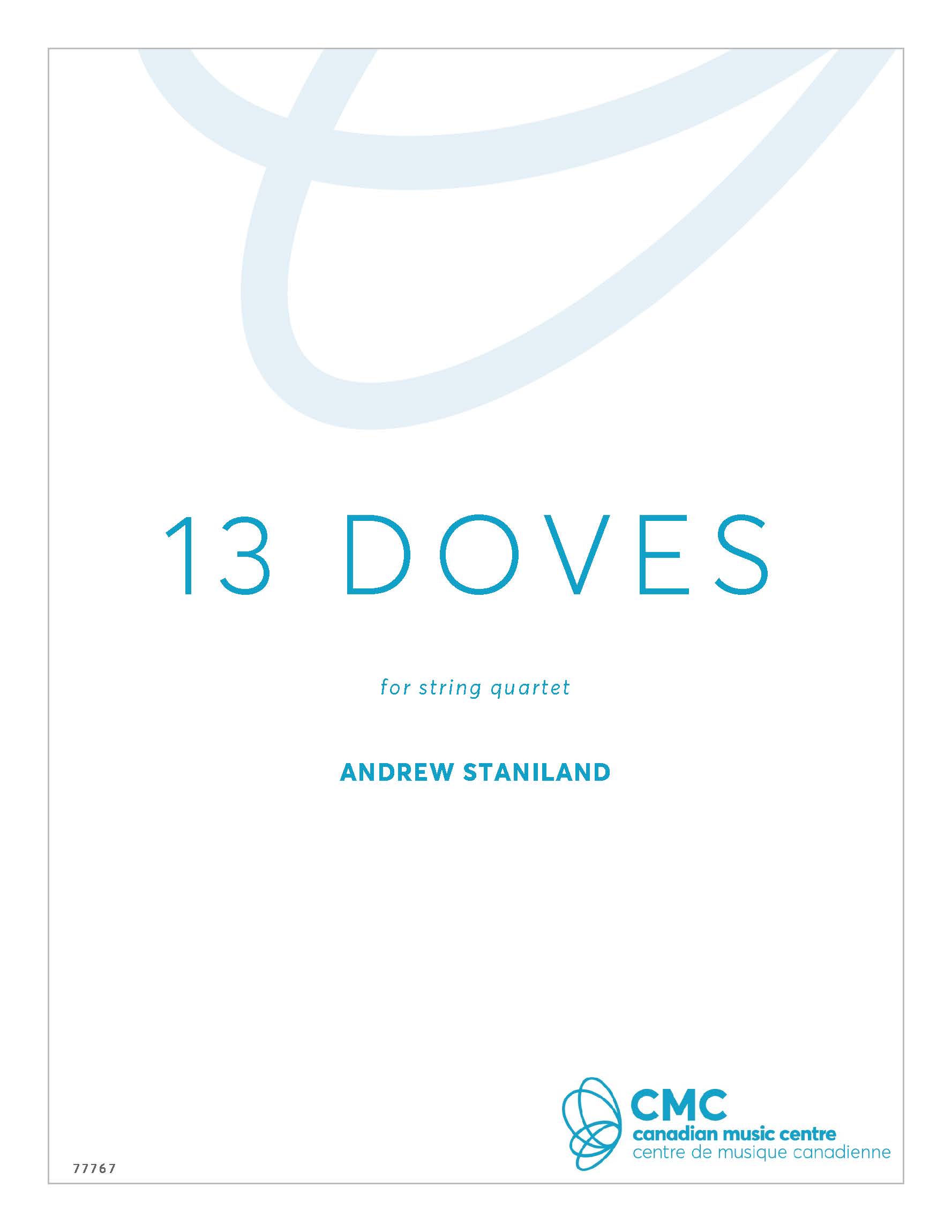This piece is written for and dedicated to the Verona Quartet, who take their name from Shakespeare’s city: Verona. I wanted to create a piece for them that would be inspired by their namesake. Just before I began work in this quartet in winter of 2019, I had just finished setting a Shakespeare text for a new work for the Shallaway Youth Choir, so his writing was serendipitously on my mind. I decided to take the Shakespearian Sonnet as inspiration, specifically Sonnet 18. The Sonnet form well known for its structure, iambic pentameter, and rhyming scheme. 13 Doves takes this structure to heart, unfolding in 3 quatrains and a couplet, ensconced in a brief introduction and coda. The iambic pentameter, with its weak-strong rhythm, becomes the heartbeat for the piece, passing around the instruments, forming the line that guides the work from beginning to end. The music is far from an instrumental setting of a poem, however. Within the structure of the sonnet, the music is free to roam where words end. The title was chosen in a rather interesting way: as I was working on the piece, I saved the file as I usually do, with a working title and a number. Each time a drastic change is made, I use a new number: doves, doves1, doves2, and so on. When I finished the draft to share with the quartet, it happened to be on version 13, and the name stuck. The word doves refers from a musical device used throughout the work called dovetailing, where there is simultaneous emerging and submerging of musical lines: as one note or harmony recedes, another appears. Technical features aside, for me this piece is about beauty – the beauty of summer wind on the cheek, the beauty of freedom within strong form, the beauty of reading a sonnet, and the beautiful sound that can only come from a string quartet.

